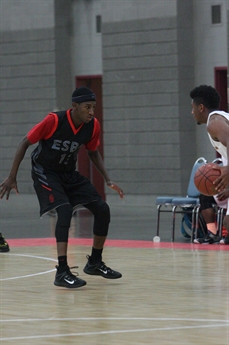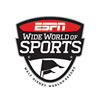MIAMI-AREA ATHLETE OVERCOMES DEAFNESS TO INSPIRE TEAMMATES AT AAU 17U SILVER SHOWCASE
2015-07-29Corey Smith cannot hear well. In fact, without the help of his cochlear implant, he cannot hear at all. Smith was only a few months old when his mother realized he was not responding to sound and learned of her son’s profound hearing loss. She feared her infant son would never hear ...
 Corey Smith cannot hear well.
Corey Smith cannot hear well.
In fact, without the help of his cochlear implant, he cannot hear at all.
Smith was only a few months old when his mother realized he was not responding to sound and learned of her son’s profound hearing loss. She feared her infant son would never hear her say ‘I love you’ and she worried she would never hear him call her mom.
Only a few years old, Smith was not benefitting from the prescribed hearing aids and became a strong candidate for the cochlear implant, a surgically implanted electronic device that provides a sense of sound to a person who is profoundly deaf. He endured the surgery in June 2001 and was fully connected that August.
Shy at first and acutely aware of the constant stares, Smith has leaned heavily on the game of basketball to grow as a student athlete.
“He’s really done a great job maturing,” said Gaston Rodriguez, who coaches Smith at Coral Gables High School (Coral Gables, Fla.) and with the Erik Spoelstra Basketball Academy. ““He leads by example. He is all energy and when his energy level is great and he’s confident, he’s a great basketball player and an even better teammate. He’s really grown a whole lot. It’s been really cool to see it.”
A lifelong lover of football, Smith made the decision to focus on learning to play basketball just before his freshman year in high school. While he is naturally athletic, Smith’s basketball talent did not come without substantial work.
“My first time, I couldn’t play,” Smith said. “I didn’t even know what to do, but I kept practicing. I just kept working. When I went to tryouts as a freshman, I made the team and I was so proud because I never thought I would be good enough to play.”
Smith continued: “I came back the second year and was the Most Improved Player because I worked so hard that year. I’m so proud and I feel good about where I’m at now.”
While he was very self-conscious following his surgery as a youth, Smith has grown increasingly confident in himself through the game of basketball. He no longer concerns himself with how others view the head covering he wears to keep the embedded hearing device dry and unbothered.
“It’s kind of a miracle,” Smith said. “Most [deaf] kids don’t want to play basketball because they feel nervous or shy but, to me, I feel confident.”
Smith has found his stride as a player and, perhaps more importantly, he has grown tremendously as a student-athlete. He and his teammates {what] this week at the AAU Boys Basketball 17U Silver Showcase in Louisville, Ky.
Several hundred college coaches sat courtside during the event, evaluating the more than 3,000 talented athletes in search of college scholarships. That kind of pressure oftentimes wears on even the most elite youth athletes.
But not Smith. He has overcome much greater pressure his whole life.
As Rodriguez said: “When you handle that pressure in life, everything else is somewhat relative.”
 Email
Email Print
Print










